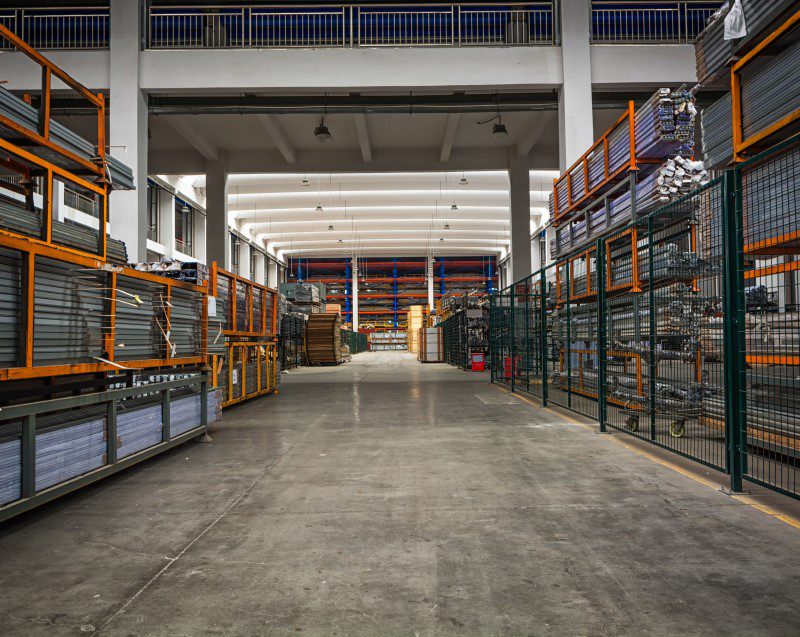The choice of factory has a significant impact on the workforce. Selecting the right floor for the factory is crucial to ensuring the efficiency and productivity of the workforce. However, there are common challenges on the factory floor that pose serious impacts on the tile industry. In this article, we will explore the common challenges of the factory floor and how they impact the tile industry in a broader sense.
1: Heavy Load:
One of the major challenges of the factory floor is the heavy load. Factory floors are subject to heavy loads from machinery, equipment, and materials. This constantly puts weight on the floor. Hence, the flooring is expected to deteriorate, crack, or become uneven over time.
2: Impact and Abrasion
Factory floors are exposed to impacts from heavy equipment, tools, and dropped objects. The continuous foot traffic and movement of material cause abrasion, resulting in wear off the floor and tearing or cracking on the factory floor.
3: Chemical Exposure
Factory workers often deal with chemicals, oils, and other substances that are either leaked or spilt on the floor. These chemicals corrode or stain the floor, affecting the workforce and the appearance of the factory floor. Oftentimes, the integrity of the factory is also affected.
4: Slippery Surface:
Spills, moisture, and the presence of certain materials directly impact the floor, posing a risk to workers. The slippery floor leads to slip-and-fall accidents, taking a direct hit on productivity and causing injuries.
5: High noise levels
Factories are the busiest environments due to machinery, equipment, and production processes. The hard surfaces of the factory floor lead to noise amplification and discomfort. This potentially leads to increased employee concentration and communication.
6: Cost consideration
The cost of installing, maintaining, and repairing factory floors is a significant challenge for factory owners. Balancing the initial investment, ongoing maintenance costs, and lifespan of the flooring material is essential.
Impact of factory floors on the tile industry
The impact of the factory floor on the tiles is apparent. Some of the challenges of the factory floor have a bad impact on the workforce, such as slip hazards, discomfort, and poor-quality air. However, these challenges also pose a direct impact on the tile industry. Some of the major impacts of factory floor challenges are as follows:
- The tile industry provides durable flooring solutions to meet the demanding conditions of their products and facilities. The constant damage to the factory floor leads to heavy and costly tile replacement.
- To withstand chemical exposure and stain resistance, the tile business uses non-porous surfaces or protective coatings to prevent the absorption of chemicals. To make cleaning spills easier, the longevity and appearance of the tiles in factory settings depend on protective coatings, leading to more costly options.
- Maintaining the factory floor requires extensive and frequent repairs that directly disrupt the workforce and increase operational costs. The repair, resurfacing, and cleaning of the factory floor increase the costs of the tile industry as the integrity and branding of the business are associated with it.
Conclusion
By addressing the common challenges of the factory floor, the specific needs of the factory floor and their suitable solutions become more visible. This ensures that factory owners directly benefit from durable, stain-resistant, and slip-resistant products. The major impact of such challenges is an increase in demand for replacement and the expansion of product offerings that are not specialised. The growing market for tiles creates competition for the factory workers to identify the right tiles for their factory, and thus branding and the factory environment present challenges.



